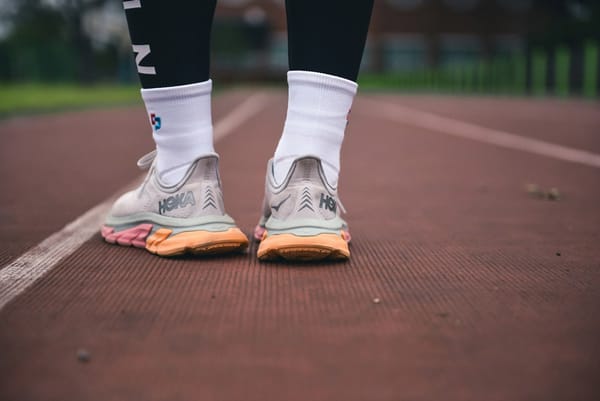How Your Sleep Cycle Influences Your TDEE: The Sleep-Energy Connection

Sleep is a very important part of one's health and well-being as it affects the cognitive functions and efficiency of metabolism. People, however, tend to overlook the impact of their sleep on TDEE. Distractions caused by poor sleep affect hormonal balance, energy levels, and the body's ability to burn calories. It makes it tough for one to maintain a healthy weight and lifestyle.
An Overview of the Concept of TDEE and Its Components
There are four main components that make it up:
- Baseline Metabolic Rate (BMR): The energy required for basic life functions at rest.
- Thermic Effect of Food (TEF): The energy that is required to process and metabolize food.
- Physical Activity Level (PAL): The total amount of energy used for exercise and other movements.
- Non-Exercise Activity Thermogenesis (NEAT): The energy used in all other daily activities, like walking and fidgeting.
Since sleep affects metabolism, hormone levels, and physical performance, it is a big determinant of all these components.
How Sleep Affects Metabolism
Sleep is one of the more critical activities for metabolic processes that regulate energy expenditure. The quality and quantity of sleep affect how many calories one's body will burn efficiently.
BMR
BMR consumes a huge number of calories in TDEE. Sleep gives all the functions its tissues, cell systems, and hormones to maintain properly. Poor sleep would hence reduce metabolic efficiency, resulting in a low BMR and conserving energy.
Hormonal Regulation of Sleep
Metabolism and appetite are also regulated through several hormones during sleep:
- Leptin: A hormone signaling fullness. Lowered with sleep deprivation hence leading to a higher hunger level.
- Ghrelin: A hunger-stimulating hormone. Increased with poor sleep, leading to increased food intake.
- Cortisol: The stress hormone. High levels are associated with the storage of fat around the waist—even higher when sleep is not sufficient. Sleep deprivation leads to insulin resistance and indirectly increased body mass or metabolic syndromes.
Sleep Effects on Physical Activity and TDEE
1. Reduced Energy for Exercise
Lack of sleep can make you feel quite fatigued and will indeed reduce the amount of physical activity you can undergo. Consequently, the amount of energy expended through the activity may drop as well.
2. Lower NEAT Levels
Poor sleep also reduces NEAT—calories burnt from all small activities done in the day—like fidgeting, walking, or household chores. Mostly, this decreases TDEE the more fatigued you feel as well.
Ways to Optimize Sleep to Better Manage TDEE
Regular Sleep Schedule
Sleeping and waking at a fixed time helps your body in maintaining its internal clock. In return, it shall result in a better hormonal balance along with improved metabolic functioning.
Aim for 7-9 Hours of Sleep
Most conclusions on propositions say that adults should spend 7-9 hours sleeping each night. Any less seems to disrupt metabolic efficiency and promote energy retention.
Avoid Stimulants Before Bed
Caffeine and nicotine, along with screen exposure, can largely degrade sleep quality. By cutting down on their intake during the evening, sleep patterns might improve.
Create a Relaxing Sleep Environment
By making the bedroom dark, quiet, or cool, this would lead to better sleep. Other things considered are having a good mattress and avoiding screen time before bedtime.
Managing Stress Levels
Chronic stress also impairs sleep quality by raising cortisol; both factors have negative consequences for metabolism. TEE regulation is supported by sleep quality improved via meditation, deep breathing, and exercise.
Conclusion
Sleep acts as an important regulator of TDEE. Key balance vectors—hormones and metabolic rates—work together in defining the amount of energy one expends by lowering the use of extra energy through decreased physical activity. Good sleep hygiene helps ensure that metabolism in the body stays perfectly and the energy levels high to support long-term fitness goals.



